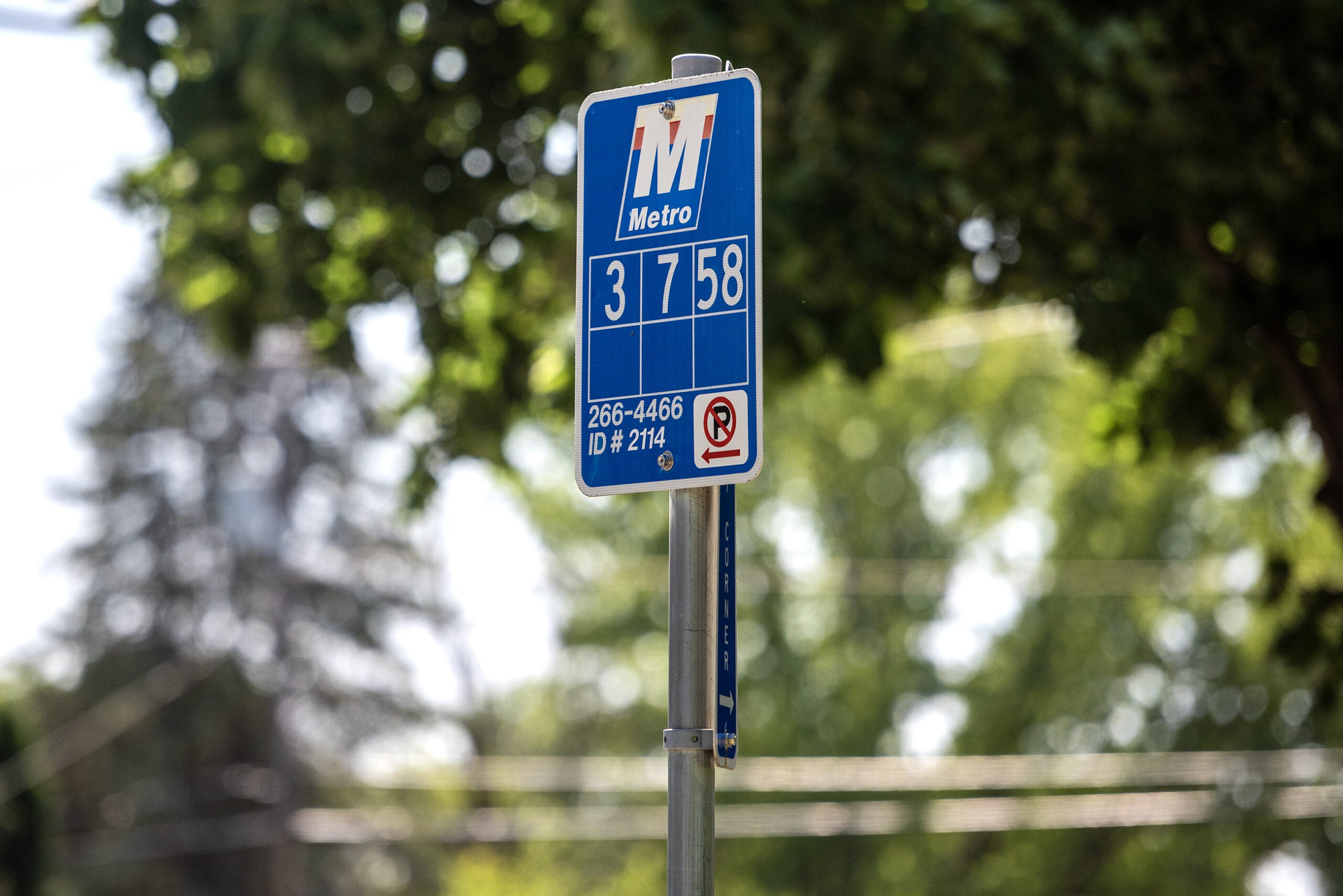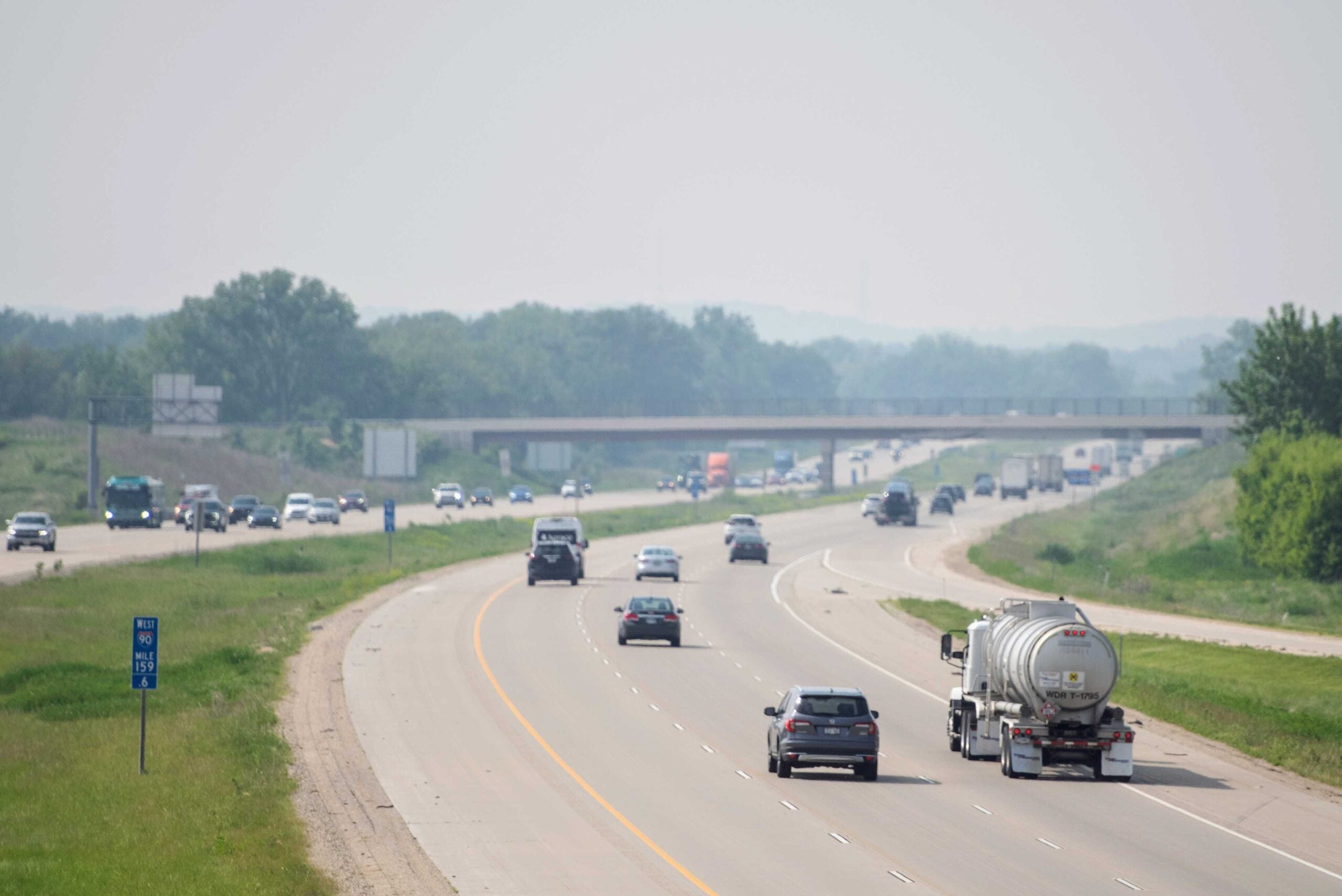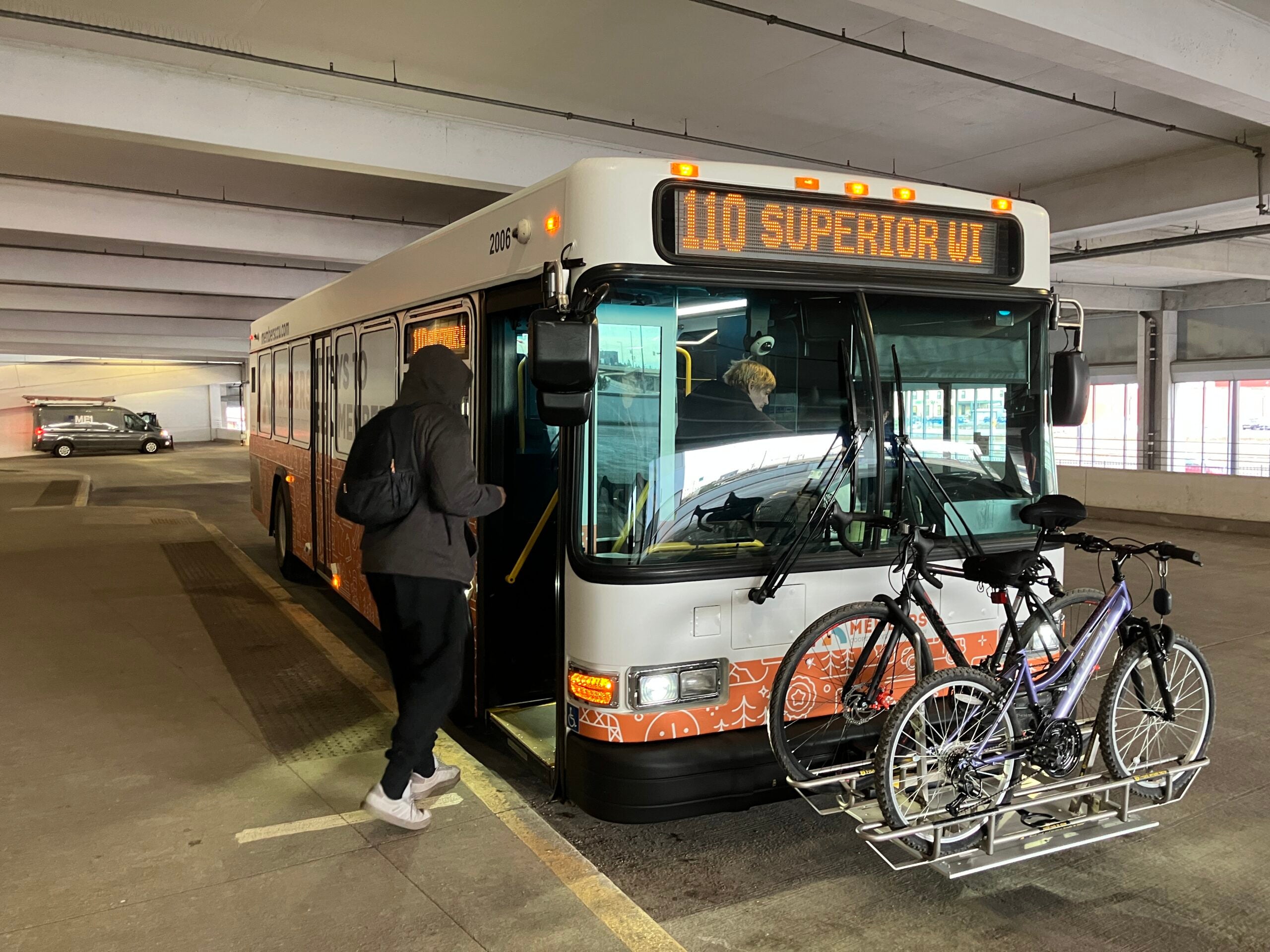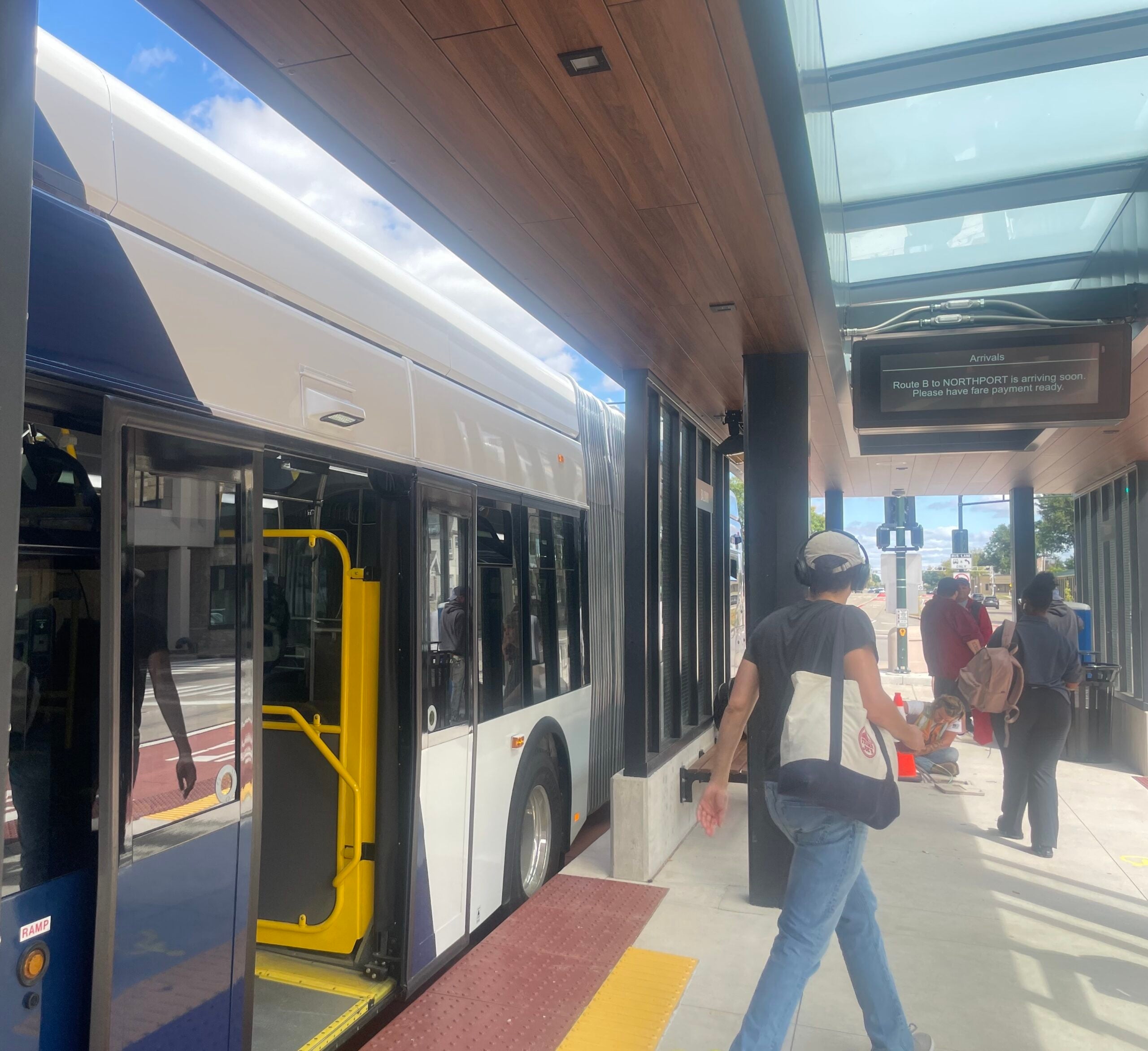Madison officials say disruptions to bus routes earlier this week were the result of coordinated action from Metro Transit drivers during ongoing contract negotiations.
A total of 18 routes were affected Thursday, city spokesperson Dylan Brogan said in response to questions from WPR.
That included about 12 percent or 179 of Thursday’s 1,442 hours of scheduled service being cancelled, according to the city. The highest number of cancellations happened during morning commuting times.
News with a little more humanity
WPR’s “Wisconsin Today” newsletter keeps you connected to the state you love without feeling overwhelmed. No paywall. No agenda. No corporate filter.
In a statement issued by the office of Madison Mayor Satya Rhodes-Conway, city officials attributed those disruptions to an unusually high number of absent drivers and to many drivers declining to take on overtime work.
“We are disappointed that in the middle of bargaining, some Metro employees chose to take concerted action that disrupted a vital service that so many other working Madisonians depend on,” the statement said. “We apologize for the inconvenience that this has caused riders and will be looking at all avenues to ensure we maintain City transit service while we resolve this successfully.”
Madison Metro’s bus drivers are represented by Teamsters Local 120. Rick Roeth, the political director for that union chapter, declined to comment Friday.
Madison Metro workers are currently working under a contract that expired at the end of last year.
Base pay for a Metro Transit bus driver starts at $26.46 an hour, according to the city.
On Thursday, Madison Metro experienced its highest number of absent drivers so far this month, according to Brogan. He said there were a total of 37 unplanned absences that day on top of 22 preplanned absences, not including drivers who are on extended leave.
Brogan also said only four drivers agreed to take on extra hours Thursday, while Metro Transit usually expects about 40 drivers to do so.
Each driver’s work schedule typically includes between one to three hours of scheduled overtime each week, although drivers can choose to take on extra work beyond that, Brogan said. On Thursday, he said the overtime declined by many drivers was voluntary overtime rather than scheduled overtime.
As of midday Friday, normal service had resumed and there were no cancellations, according to Brogan.
Madison officials declined to comment on the specifics of discussions with Teamsters Local 120, citing ongoing negotiations.
“The City of Madison is committed to supporting employees and their rights, and to providing competitive wages and benefits for all employees,” the statement said. “Generally, City employees including other represented units such as Police and Fire received a 3% wage increase in 2025, and we are committed to ensuring parity with other bargaining units and other national comparables with regard to wages for Metro bus drivers and other employees.”
Last year, Madison launched an overhaul of its bus system known as bus rapid transit.
And, starting next month, Madison Metro will be extending its existing Route 38 into neighboring Monona on weekdays.
Wisconsin Public Radio, © Copyright 2025, Board of Regents of the University of Wisconsin System and Wisconsin Educational Communications Board.






